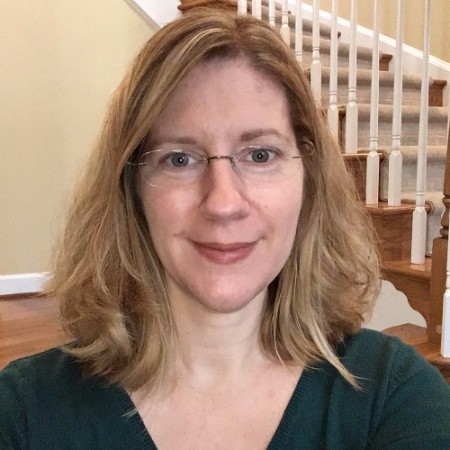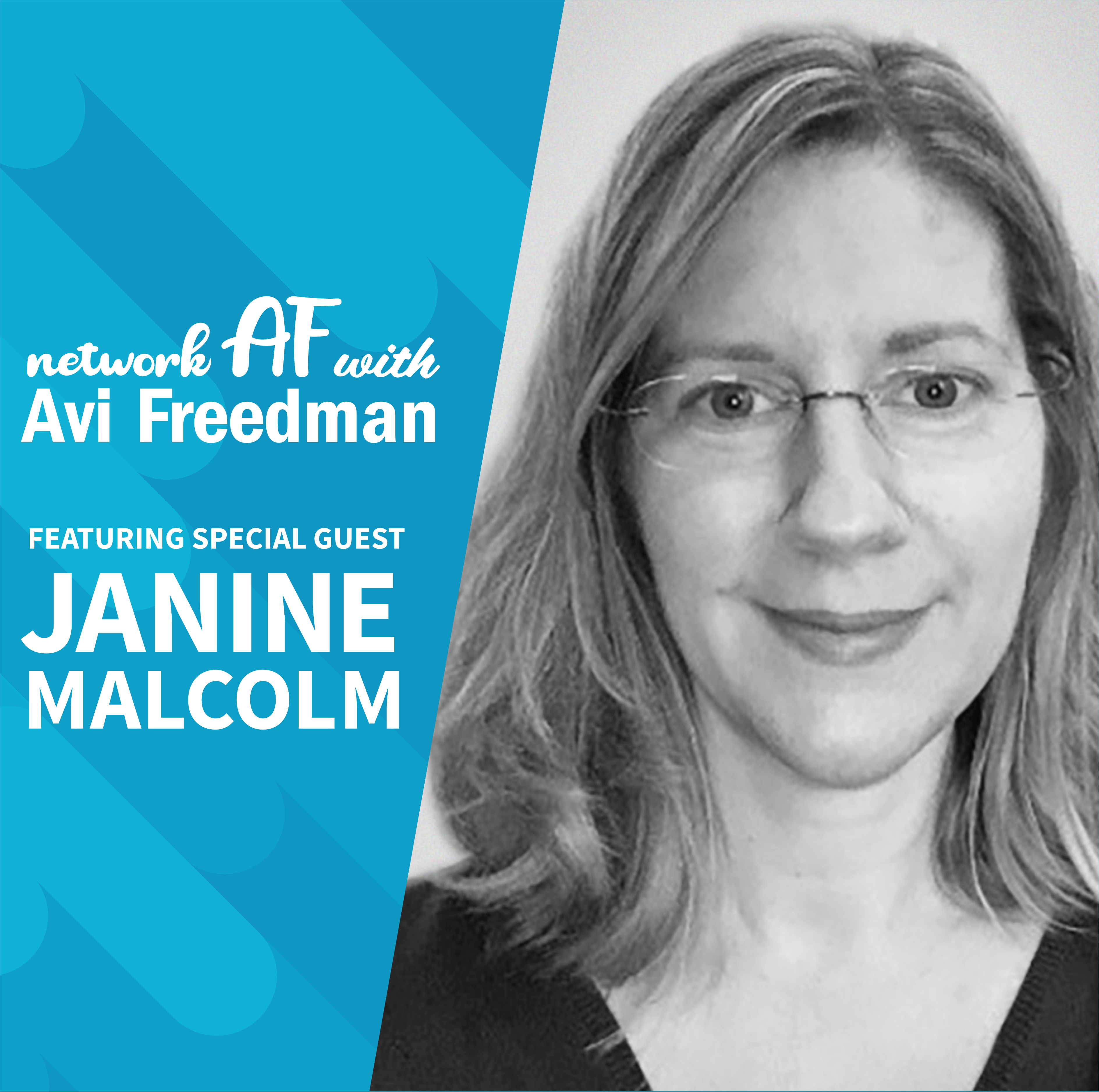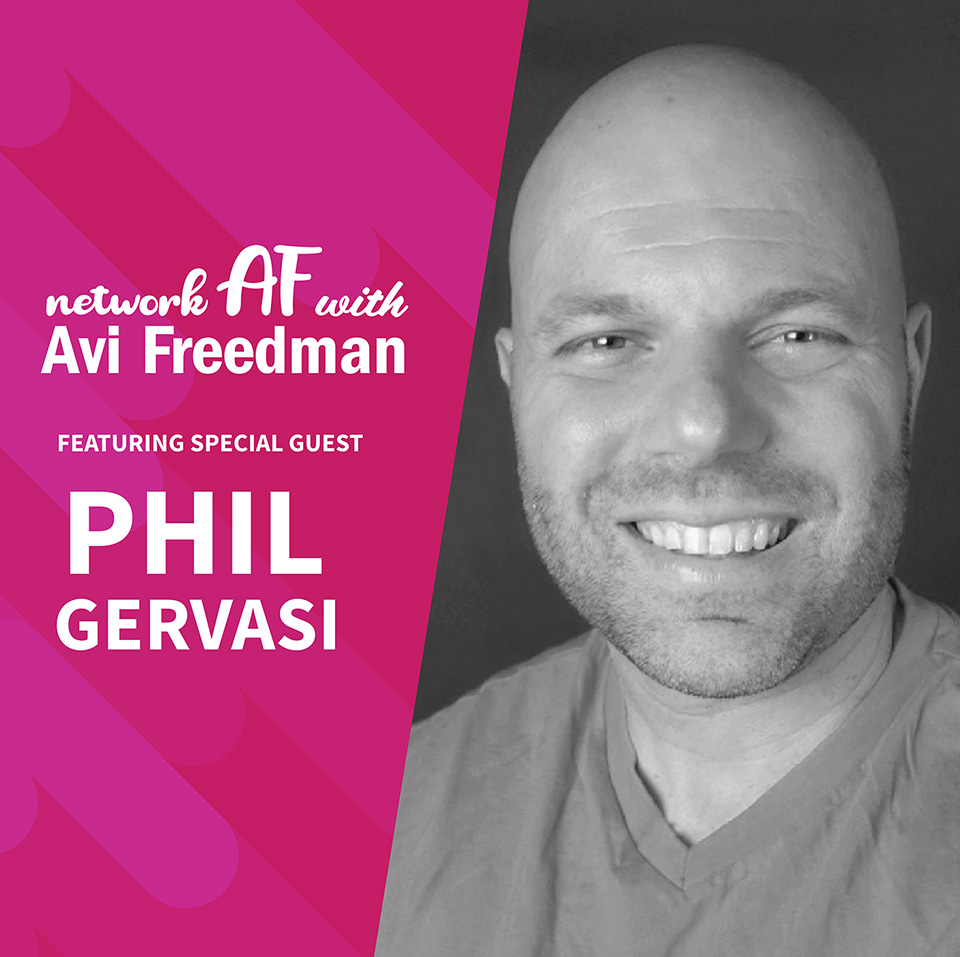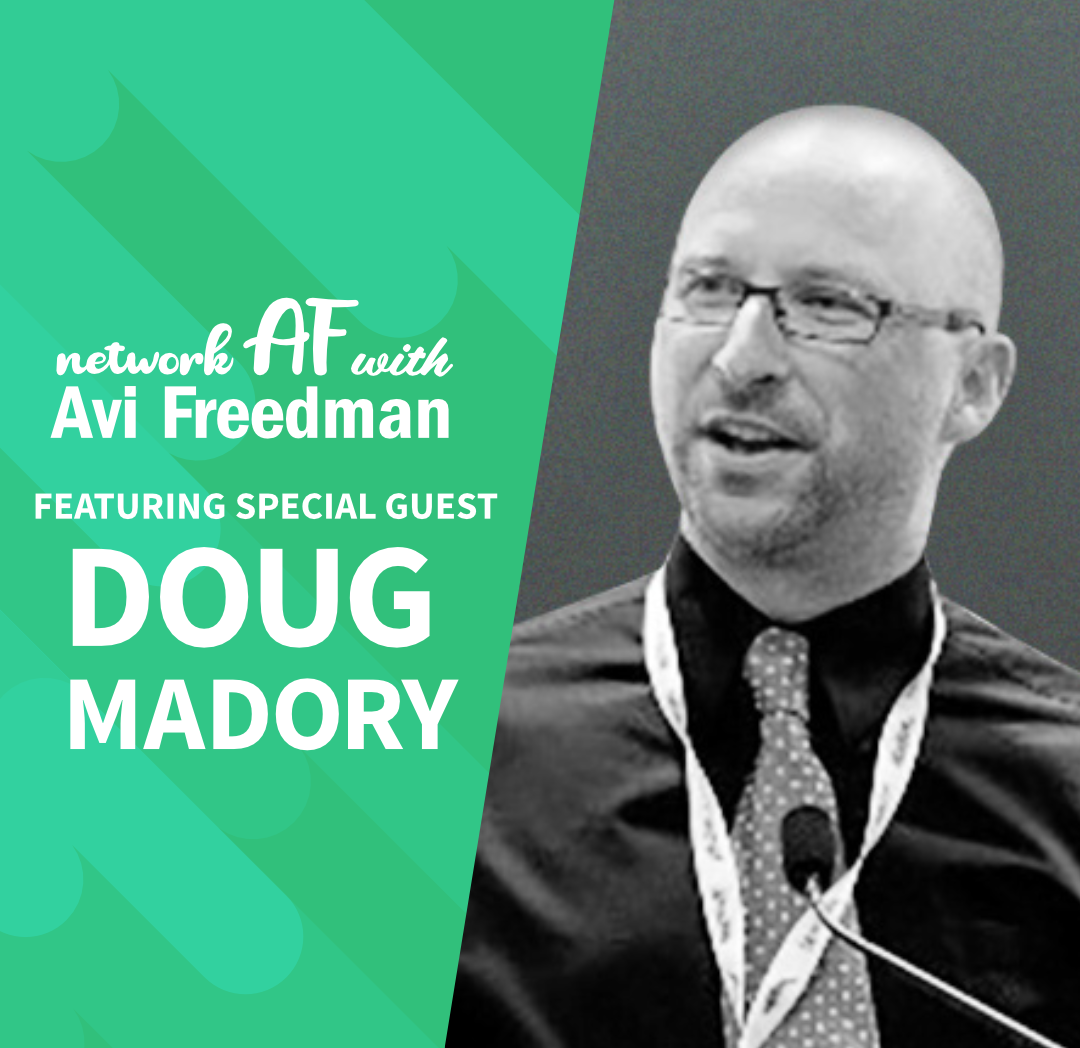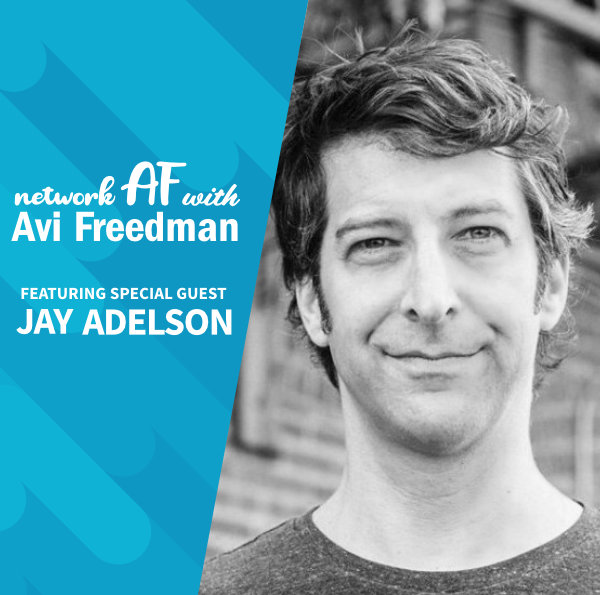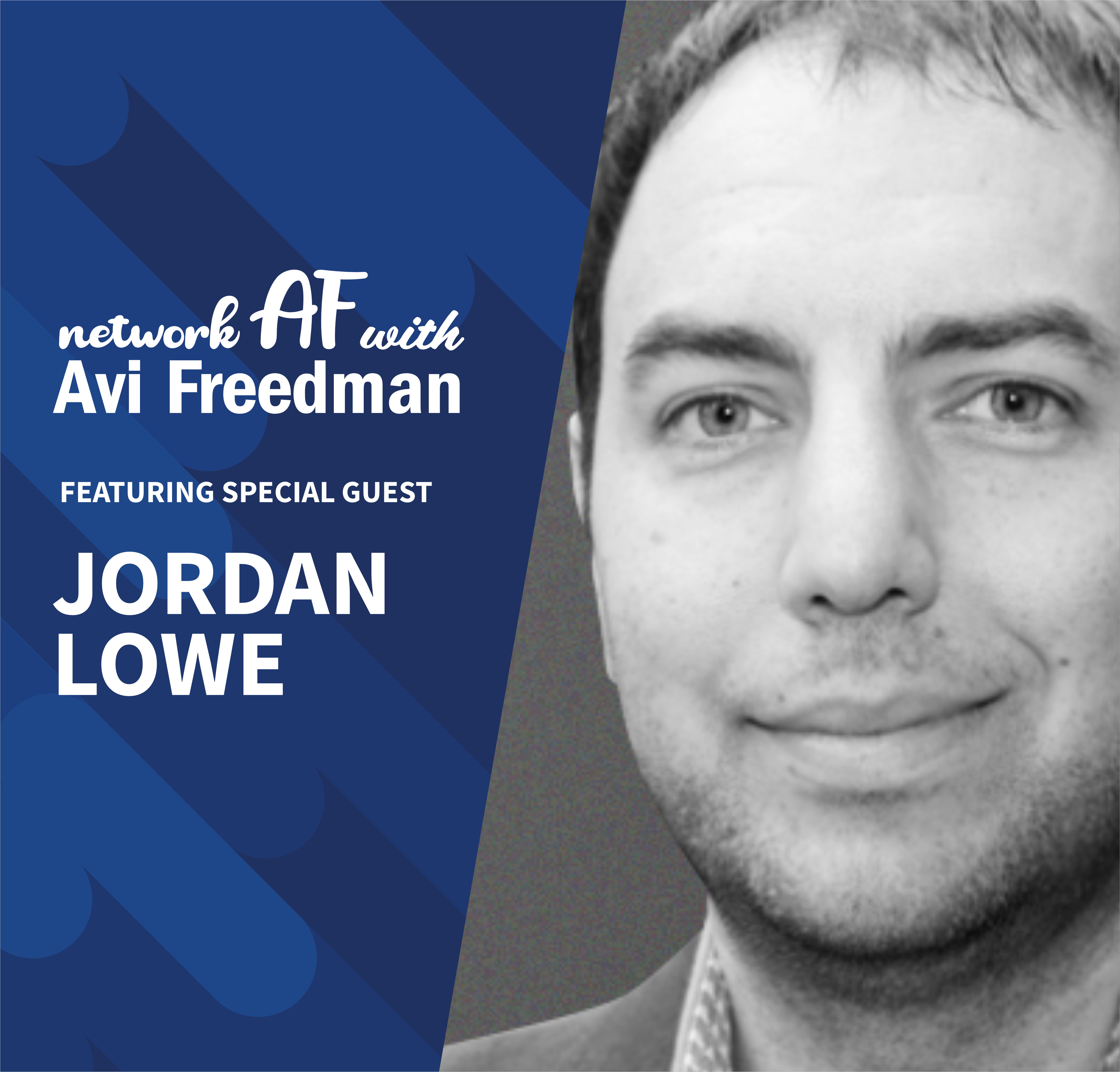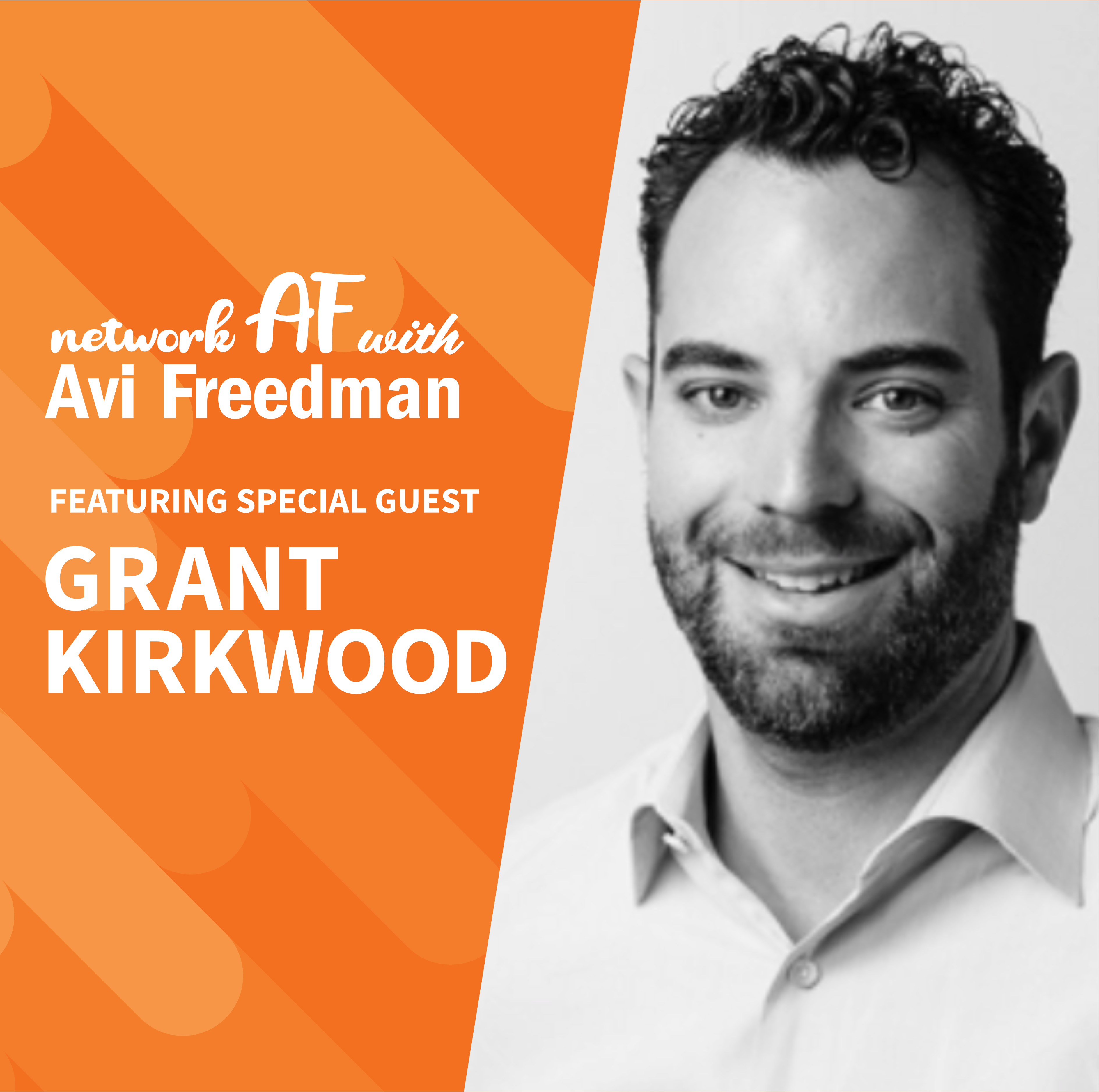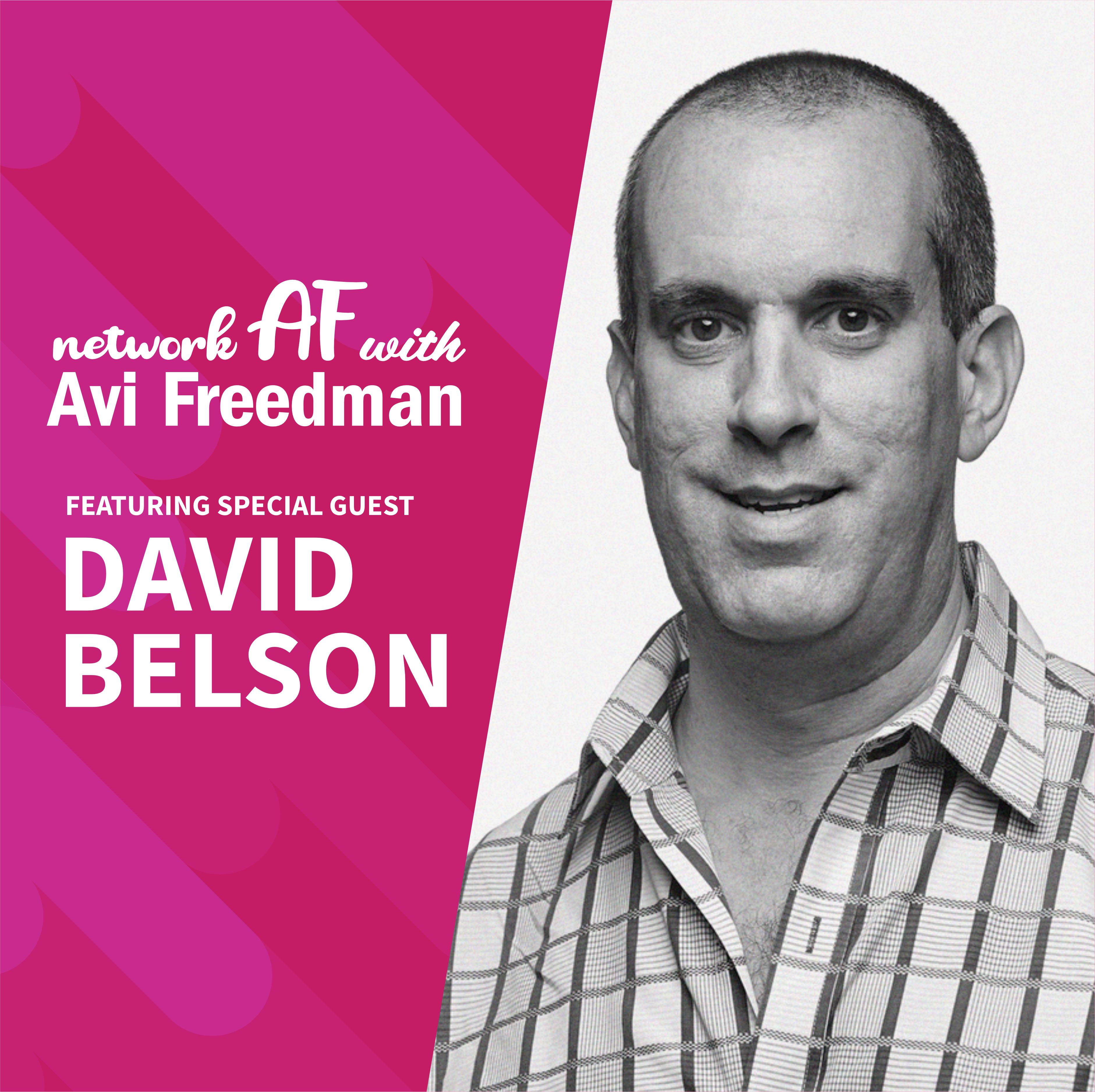Welcoming newcomers to the networking industry with Janine Malcolm
- 0.5
- 1
- 1.25
- 1.5
- 1.75
- 2
Avi Freedman: Welcome to this episode of Network AF, and I'm proud to welcome my friend and fellow networker, Janine Malcolm. Janine, if you could introduce yourself and tell us a little bit about what you're up to and networking.
Janine Malcolm: Hi. Janine Malcolm. Salesforce Director of Network Engineering. We run big networks. So, what am I doing right now in network engineering? Running a couple of groups at the moment. We have the backbone team that was mushed together into an overall network engineering team. An so we also have another team that helps us run some of the M& A networks as well underneath me as now. So yeah, it's been a big change for me, because the first couple of years, it was just the backbone and now it seems to be everything else. So, it's pretty cool.
Avi Freedman: Well, it's interesting because in service providers, they just call the network, the network, because that's inaudible, in enterprise it's like there's prod production networking which runs the revenue. And of course, without Salesforce, people can't find each other in business nowadays. And they can't look up who said what to who, and all the other systems fail because you have a system of record, and then there's Corp IT which is different kinds of networking, and so you're mostly on the prod side.
Janine Malcolm: We're on the prod side, yeah. And there is a business cytology group and they have an entire wonderful team that helps on that side, but no, we're just on the production side.
Avi Freedman: Cool. So different customers, same idea, different scale maybe on the prod side.
Janine Malcolm: Oh, no. We have a lot of offices.
Avi Freedman: Okay. Well, it's more location, maybe less volume-
Janine Malcolm: Definitely.
Avi Freedman: crosstalk applications. Cool. So what made you interested in networking? Where were you when you decided networking was interesting or what got you into it?
Janine Malcolm: I was in college and I didn't do so well, it wasn't that I didn't do so well, I felt like it was not very good education for my money, because I was paying for it myself. And so I decided working full time and going to school full time was a little bit of a challenge. So I decided, okay, well, what am I going to do? And I was actually working on a firm that I had worked on as a teenager when a friend told me that they were interviewing at Dejex. And I said, " Well, hey, I've always loved computers." My grandfather actually got me into computers really young, like four or five.
Avi Freedman: Oh, wow.
Janine Malcolm: Yeah. And so, I was like, okay, well, let's try this out. No, I'm sure I can do this. And I went in as a customer service person in Dejex in dial up. So, and then I moved to lease lines, like T1s, that kind of stuff, T3s that kinda thing, and then I just gradually... I was over in the web server side for a while, and that was eye opening for me.
Avi Freedman: It was for everyone at the time.
Janine Malcolm: Yeah. Especially with what web servers were mainly doing at that time, we'll move on. And then I went in to-
Avi Freedman: crosstalk yeah.
Janine Malcolm: Yeah. Two years in, I was over on the network engineering side, and I really decided that, wow, this is really cool. I love this. This is basically a big picture and I get to move data around and I'm learning how to at least code and Perl. Hey, look, sorry.
Avi Freedman: I still do.
Janine Malcolm: I still do. I admit it, having this reforming yet, but that's how I got into it. Yeah.
Avi Freedman: No, that's cool. I remember my first day of computer science, and I don't have a degree, I left before, and I met the person that did image processing and I said, " Oh, that's really interesting." And the guy that did networking, I'm like, " Oh, okay." And then I was interested in parallel distributed, found the internet, back at a good time. And I also, like you, I'd been fortunate. When I was eight, my uncle gave me a book on basic and my father did stuff. And my uncle briefly let me on the ARPANET. And I quickly found systems he didn't think I should be in. So my early intro was like, " No, change passwords, stay away." But I have fond memories of Dejex, not only because Doug's an awesome guy, and Lisa, Ed and Dave McGuire and the whole crew, but because I was at this club, which is the Science Fiction Convention crosstalk. My wife and I, Gail and I met at Worldcon in Chicago a few years before that. And I saw this flyer, some three 260 Unix Shell access. And I was like, " I could do that. I have a inaudible in my basement." And so we did that. I'm actually partnering with Dejex a little bit. And of course Dejex, it's pretty early in growing backbone, which then, crosstalk, oh, no, it was pretty cool. And at net access to my ISP, people started often, in the knock, when we had a network before that it was supportive And then it's always interesting because at the time it was people who had bright, shiny eyes would either be like, " Ooh, systems," or, " Ooh network," or some people they're really are passionate about support and God loved them, because I've done my share of support and I love talking to customers, but it's like they can't use Eudora because they're just this full, can be frustrating sometimes as you remember, but yeah. That was my early career path. I guess we'll later talk about how do we help people get in, because it was a pretty cool time to come in and anyone that had the bright, shiny eyes was going to get the opportunity. What was really helpful in Dejex earlier in your career? I guess two part question, what was really helpful, and what was frustrating that we could do better at in terms of welcoming people?
Janine Malcolm: Sure. So one thing that was fantastic is they, and I've tried to do this as much as possible with everybody in all of my teams now, is that it was a big mentoring experience. I literally sat with someone and I was right over their shoulder, and they were right over my shoulder. We were working on problems and doing stuff together. " Hey, let's go do this router over here. Hey, let's go troubleshoot this problem." It was honestly fantastic that way. And you can still do that even in the times of the pandemic, but I think it was amazingly helpful. One other thing that I think was wonderful is that Dejex had a lot of fantastic women, and I actually-
Avi Freedman: Doug's wife is an amazing woman.
Janine Malcolm: Exactly. And then there was Megan who is my mentor. So I remember fondly, and then Tori Wharton inaudible now. So it was really great to have so many people to help out. It was a lot of helping each other, which was, I think, great. I still feel like that is the biggest way to go. I think you learn, I think, what is it, 70%, you're sitting there, experience and mentoring and everything, and we still do that on all my teams. We cross train. I think that's a fantastic thing. I actually signed up to be a mentor because I really want to help. And even though I know I'm not going to have the same technical skills as a person who I'm probably mentoring because it's mostly software developers, and I'm not, but still-
Avi Freedman: crosstalk even if we think that white space shouldn't be syntax.
Janine Malcolm: It's just like I thought the other day, that's so funny.
Avi Freedman: inaudible, FORTRAN, it's not an illustrious line of white space as Syntax, but-
Janine Malcolm: It's true, but yeah, no, I think that that same thing is huge even now, definitely.
Avi Freedman: I guess that's an interesting question because, as the world gets more complex, it's like a friend of ours from IBM cloud says without the network, there is no cloud or the Zen version, which is network is the water of the clouds, the connective tissue, what clouds are made of. But we have these amazing computers, and these amazing networks, and these amazing SAS services like Salesforce. And, it can be hard for someone in college or even not going to college to get at what all the underneath is. And then we have this tribal knowledge. So I guess that's an interesting question. You're still trying to, at Salesforce, keep those mentorship patterns, maybe not pair programming or routing or whatever, but even with COVID and maybe the after?
Janine Malcolm: I think it's important to do that. I think, even though yes, we have all these wonderful classes and everything and it's way better than it was. Like when I was in college, it wasn't network engineering, there was computer science and that was pretty much it, right?
Avi Freedman: Yeah. We were studying protocol fields of things, not dynamics of distributed networks.
Janine Malcolm: Exactly. So it's a different thing. And I think that there are some really good programs these days, but I still think that the good old fashioned mentoring is fantastic, and it applies to a lot of different kinds of areas.
Avi Freedman: So let me ask you a question about that. So, I will say this as someone who has destroyed the internet one and a half times, because I was associated with Vinny and AS7 2007. I was the fat man and the fat man little man internet exchange, but it wasn't my thing. It was inaudible. Have you ever blown up the internet Janine?
Janine Malcolm: Oh, heck yeah.
Avi Freedman: Okay. So do-
Janine Malcolm: Who hasn't taken BGP off of a router, or inverted your access list or something? Yeah.
Avi Freedman: 255 to 00 or 00 to 255. We said we weren't going to make vendor jokes, I hope you know that.
Janine Malcolm: Sorry.
Avi Freedman: So, I was actually at social last night where it was like, " Oh, inaudible, did you know the internet sometimes gets blown up?" I'm like, " Yes, I'm aware." A lot of this speaking of old young getting into it, it feels like we all had permission to explode the internet. And now if Kenton said, " Hey, I might try this thing and it might explode the internet, it might take our service down," I'd be like, " Oh no." inaudible.
Janine Malcolm: Yeah-
Avi Freedman: crosstalk made e- learning easier or?
Janine Malcolm: I wish I had had better labs then. I do honestly think that labs these days are much better. I was actually in the lab at Dejex for a while and helping build a lab and all of that stuff, but it wasn't like it is today. I'm able to recreate a scenario a bit better. And I do think on that front, if you're talking about big changes and that thing, automation, getting people keyboards, that's all good. You're going to have human errors. People get tired, they get exhausted, you're cramming more things in the smaller windows and that kind of stuff to make sure things stay up. But in order to keep things up, you've got to actually change them, fix them and stuff. So you're going to have human errors.
Avi Freedman: Yeah. And the goal is to have computers automate the good and not replicate the bad.
Janine Malcolm: Exactly.
Avi Freedman: People may not know this, but Janine and I started doing networking, there were no comments on static routes, and most networks were bubble gumming static routes and no one knew why it was there. So don't touch it because things might break. So definitely, the ability of inaudible and give-
Janine Malcolm: Throwback, my best friend.
Avi Freedman: Yes. The old way was reboot in 15 minutes and then make the change. And then I hope that you've remembered to cancel the reboot or whatever if you call that, so no, that's cool. Were there any frustrations, any things that you think we could be doing better at the time, or now to make things more welcoming for people getting into it?
Janine Malcolm: I think at the time, it was really word of mouth, and I wonder how much word of mouth there is now. I really feel like there is, it's still that way, still word of mouth, getting into the industry. " Oh, hey, I noticed that you have these skills. I thought they're applicable over here." How do we reach people especially in network engineering? I think that software development is much more accessible for people overall. What I've seen, I don't know, maybe this is just my anecdotal view, after going to conferences my entire career, I'm thinking maybe 15% women in the network side. I think it's 30 to 40 on the software development side, which, hey, they're doing way better. So I feel like I should work on that. Help it out.
Avi Freedman: Anna Claybourne inaudible makes that suggestion to bridge, because her point is let's market to the software engineering which looks more like early computer science. It's probably not going to get four times the representation as we do early in career coming out of school. But there are definitely things that turn people of all sorts of diverse backgrounds off to a group that's not like them, but she suggests we market, " Hey, if you're interested in distributed systems, the internet is the biggest, most dynamic distributed system there is. And if you want to study it well, that's what I like doing, if you want to engineer it." And the trick with automation is not having 40 engineers each write a Python program of their CLI thing, but what are the patterns and let's think about it and do it.
Janine Malcolm: Right. One system, not 40.
Avi Freedman: Yes. Yeah. Have you tried that recruiting tactic yet?
Janine Malcolm: I have not, which I think is a fantastic idea.
Avi Freedman: crosstalk and see if-
Janine Malcolm: They have to try it, definitely.
Avi Freedman: Have there been any other organizations that had as many great women, trusted in authority, as what you experienced in Dejex, later in your career?
Janine Malcolm: I think CoJen also had a pretty good representation as well in the network engineering side in particular. It wasn't quite the 50-50 like we had at Dejex. The network engineering team at that time was 50- 50. It was wonderful, but I think that they did have a pretty good representation. I'm working on it.
Avi Freedman: We're further behind and working on it. And I think some of that, that we think about, which is maybe tougher during COVID, maybe not, is earlier stage, getting people earlier in stage, earlier in career because there is more diversity in maybe showing the fun, but also worrying a little bit about the tribal nature of it, which also different people do better or worse at, Hey, I'm confused. Can you please help me?" Or how to formalize that to make sure that, it's not just gender, it could be different cultures that people come from where, some people are better at getting feedback or all these things. So we'll figure that all out together. So you mentioned CoJen and Dejex and Salesforce, so it's all networking, but service provider and having customers that are themselves service providers, although, in some sense, we're a customer of Salesforce, we're a SAS company, so we are a customer but a service provider to our customers, but it is a little different. I'm just curious what you found is technology culture problems difference between working in service provider networks versus enterprise.
Janine Malcolm: So I have worked at, I think it's three and three actually. So, three enterprises. I worked at a financial institute. I worked at just a pure enterprise and then of course Salesforce. And then of course the ISP side, which I've actually had more time in, it is vastly different. I find that some things are much more strict. The very small enterprise that I worked at, I did everything, like everything, like spam assassin, I'm running Linux machines, I'm helping database, I'm doing firewalls and everything, which was great.
Avi Freedman: All around nerd. Yeah.
Janine Malcolm: Yeah, exactly. I loved it. And then I think at CoJen, the speed of innovation and the things that you get to do-
Avi Freedman: The efficiency.
Janine Malcolm: The efficiency-
Avi Freedman: I was a network engineer for Terabit, I-
Janine Malcolm: That's amazing. The efficiency there is amazing. Honestly it's a fantastic network. I think that, it probably depends on the place. I feel like I probably don't get to do as much system stuff now, as I did at CoJen, I could do more programming and systems work, even being a manager, I can do all that stuff. And now it's a little bit harder for me to do that, especially now the team's bigger. So I guess there's that dynamic of between the two, and I think pace is a bit different as well. Pace is definitely different.
Avi Freedman: Do you work with more different vendors in types of elements in an enterprise, than in your experience are service vendors more fixed and regular-
Janine Malcolm: It's fixed and regular, and especially with CoJen, when you're talking about CoJen, they know exactly what they're doing. They have a set of products, and these are the products we sell. And it's very clear. I think I actually worked with way more vendors right now, overall, which is fascinating. And I'm doing slightly different things in network engineering now, obviously, there's some differences in the network engineering side.
Avi Freedman: Does that make testing more complex when you have more vendors and different pace of newness? Your customer is not a product manager, it's someone trying to make something and the application's going to do and be hosted the way that people want it to. Does that make testing, or do you have patterns that have helped with that?
Janine Malcolm: We do have patterns to help with that, but the testing is, I would say you want to make sure that not only isn't that work running and efficient, but that the applications are appropriately running over it. So you're working with lots of service owners within the organization, and that's fascinating too. It's cool. It's like they're our customers, and we get to work with them, " Hey, this is my customer. How is your application running? What do you need?" And that kind of stuff. There's that relationship, which I think is fascinating and fun.
Avi Freedman: Cool. Yeah, I guess at another time we can get into how do all the groups and we didn't talk about security, again, the infrastructure, applications and all that, that's my day job thing, and trying to figure that out. And a lot of cultural divide there too. As much as service provider and enterprise networking and prod and co- op networking can be different applications, different people we deal with, different vendors, going across groups can be a lot, but at Salesforce, do you work with cloud as well as more traditional I'll call it on- prem routers and switches and things like that. Is that-
Janine Malcolm: We're starting to, on that front. Yeah, absolutely. But-
Avi Freedman: Is that interesting, difficult, from architecture, provisioning, training? It's network principles underneath, but it isn't exactly the same, right?
Janine Malcolm: No. Yeah. We are embarking upon this process of making sure everybody is educated in how the different providers provide the services, and they're vastly different, between the different inaudible provider vendors. So you have to make sure that, okay, well, you understand how this one works and understand traffic flows of how this one works and okay. This one provides this, and this one provides that, and trying to get everybody on a level set. So there is a challenge always of making sure everybody is taking classes, getting to do all the different types of work.
Avi Freedman: Yeah. It's interesting for us too, at CanTech. Again, we know what tunnels are. And we know what prefixes are, and we know what filters are. You know what all the basic primitives are if you've been paying attention to networking, but the infrastructure is code wave and what people want to do there. And then in cloud, it's basically you're living in someone else's virtual software land that can be hard to do the debugging. And yeah, the training is interesting. We're trying to do content, internally and externally, to help do that mapping. There's a lot of people who are trying to do that. Do you have people that are deep experts in the ins and outs of cloud one or cloud two, or you mentioned cross training, have people be enough for peripherally aware that they can be a consumer and then have domain experts?
Janine Malcolm: So yes, we have some people that are deeply involved in them, we also have just a series of wonderful classes that a team has all to make sure that anybody who wants to can learn how each one is done, and it's actually self paced. So the engineer can do that. And then sometimes there's a project that comes up and we're like, " Hey, everybody. Would you like to take this opportunity to go work on this new thing?" So we try to make space for people to be able to do that as well.
Avi Freedman: In networking, there's a lot of vendors, a lot of marketing, a lot of buzzwords, are there trends in buzzwords that you're tired of hearing of, and are there things that you think are this counter is really fascinated by and thinker really cool evolutions of technology that are really funny or you think are really promising? What's hot and what's hype?
Janine Malcolm: Okay, hype. Software defined. Okay. I'm really sick of it.
Avi Freedman: ST Star?
Janine Malcolm: Yes. Software defines anything. It's all software defined as far as I'm concerned.
Avi Freedman: The router doesn't have marbles inside.
Janine Malcolm: Right. Exactly. So that whole thing I was like, " Okay." Delivery of information is certainly interesting to me, trying to figure out how to better understand the user experience always fascinates me, because we're very careful about making sure we never give any customer information away, but we also are cognizant that we want to make sure the customer's experiences is as good as possible. So, that place, that trying to find what is going on with the customer, that's huge for me. And then the things that are underlying that, I know this is going to sound awful, you're like, oh my God, KMCs, you're like, "Are you kidding me?" So we take an enormous amount of time looking at every single path that we're using on the network. And we're spending so much time during this. And then you know what's going to happen is that they're going to broom you out of that path as soon as they can. You're on the path and-
Avi Freedman: crosstalk laws of physics, how does it go thirty five milliseconds between LA and San Diego?
Janine Malcolm: Right. We spend all this time doing this stuff, but we're still doing the same things that we were the last decade or two. So yeah, I think that, for me, that trying to make the user experience as amazing as possible. Looking at all that data, how do I make it easier for my engineers to make it better for everybody? I know that's probably not the biggest hype, but hey, it's where I'm at right now.
Avi Freedman: It's part of my frustration because, at Akamai, we had the data. When I run a inaudible company, I would look at Colonel TCP statistics and what inaudible was going to, and look at pairing performance, but yeah, routers and switches, that's an advantage actually. IT networking has some of those devices, like a silver peak load balancer or some things like that can look at performance and their network layer, but routers and switches, NetFlow and NetSlow. I've asked some of the vendors, " Could you flow hash so we could look at TCP session tracking, let's ignore quick for a second, but the RAM data you would think would be really helpful for network people, but it has user data in it. So, how do you get that between layers and combine it, and how do router vendors do this? And so what we're left with ping and trace route, crosstalk how do we have trillions of end points? Who can we partner with for that now that we're doing performance testing, but it still feels like if our computers know what the performance is, why are we doing sympathetic testing? ? And it's an augment. Sometimes you need that. Like, " I'm having a problem to inaudible in bar, can Baz or Jill do better?" You need to test that. But for a lot of it, it does seem like we could do better, but the thing is like cross stack, app, server infra.
Janine Malcolm: They are all over the place.
Avi Freedman: Yeah. We're hoping more people will do BPF on the server, which I can take that with BGPNC performance from TCP stats, but now at CanTech, we're working with new relic because that helps a network team go to an app person and say, " Oh, you have the agent, could you please do this?" But it's still, it's all, crosstalk... Sorry"
Janine Malcolm: You go to my end customers and say, " Could you help me out?"
Avi Freedman: Yeah, exactly. Help me, help you, show me their performance, and yeah, we'll see. What I learned was if you're ahead of the market of what people do or what people are familiar with, then people can't explain it to other people. crosstalk where people can explain and we can make that really easy and we can make it dynamic based on your traffic. So that's the focus, but I think most never people are like that, and of course it's always blame the network. The network is the problem.
Janine Malcolm: Oh, it always is.
Avi Freedman: I'm sure not at Salesforce, but just in general, it's part of that. And yeah, automation, you mentioned lab, so how do you lab stuff, and can you do that across all the infrastructure, or how do you do safe networking?
Janine Malcolm: Okay. So, we're getting into a little fuzzy area. I can give you generalizations. So we have different types of networks. We have mini versions of them in the lab. And then we use all kinds of different tools to make sure that codes replication, making sure all of that stuff works properly. My team is now responsible for that as well. So I've been doing a lot of that. Good times. Making sure that when we make changes, we first check in there. What does it look like when you make the change? What are the commands that you can use? Making sure that everything in the run list when we do it is fine. We have, they're R&D environments that we can then canary. We have DR environments where we can canary for certain types of networks, and then we always canary and stagger and that kind of thing. So we try to use the best possible methodology for putting anything anywhere.
Avi Freedman: So to break it down for people, who might be the outsider, I'm going to guess. So by canary, you mean a percentage of the traffic goes through some new infrastructure, or?
Janine Malcolm: So if, for instance, you're making a change to, say, you have to add a new route policy to the network, you take that route policy, you put it on one of the two routers in a location. So first you would put it in RND. Then you would put one in two routers at a location, verify everything's okay. Put it on the second router, still verify everything's okay. Then you start doing regional canaries. So if you put it on one router pair in one region and one router pair in another region, okay. Then you can then go out from there. So every single step of the way you are being as careful as possible.
Avi Freedman: Awesome. Yeah. We did that at Akamai and at CanTech we have an hour plan. So we actually copy a bunch of customers with their traffic to a separate cluster, but we don't have real users on it. Ultimately when we actually say, okay, the code is good, then yeah, we do the same thing. We'll pick a cluster and then a machine. And I'm not sure we do that for the networking. So I'll have to go follow up with our ops team. I think we might have inaudible some things, but it's all Juniper and inaudible and automated, but yeah, no, that's good. I always imagine, I have a friend who is a massive vendor torturer. I long to be as good vendor torturer, but I always imagined the Sandroid truck from Star Wars with the droids upside down with the hot pokers like, " Does this code work?" How do you do that with people that I think inaudible afford, even though we try to automate it? What features do we need and will it work?
Janine Malcolm: Yeah. And different environments require different features and you have to make sure that all the different pieces are tested in every single different kind of platform that you've got. And yes. We are constantly making sure we're checking for vulnerabilities or checking for bugs, like" Okay. What's your latest code you want me to try?" Okay. Well then we do the bugs scrub and you're like no. We try to be as nice about it as possible though. I'm not really into being mean about it.
Avi Freedman: I like that. Okay. So no vendor torture. I like that bug scrub. Is that an industry term that I've never heard?
Janine Malcolm: Yeah. We basically go and say, " Okay, so we want to put it as on this code, what bugs are there in the code?" And then we compare it to what the feature set on the network and see which ones match up. Okay. We're going to hit this bug. We want to wait for a different version of code. And of course you sometimes catch bugs on your own, in the lab, it happens, you're like, " Oh, look," and we have caught things in what we call the Canary, the first step, the very first thing you're like, " Oh, look," and then we will retroactively put it back in the lab. Yeah.
Avi Freedman: That's funny in the wild west days when inaudible in a city and it's like, " Oh, could you help me do dynamic routing for my static network?" And they're like, " What IGP should I use?" I'm like, " Well, what cards do you need? What vendors do you have? Let's look at the release notes." So it's a called a bug scrub. It's like you put that Finney card in, then spit out the hissy port. If you have this protocol enabled, it's like, " Ah," but literally it was a point at which I was like OSPF, even Rib V2, God help you, ISAS, IBGV, pick the thing that has the fewest bugs for your platform. But the flip side is that was without testing and deploy. And that was clickety clickety. So as you said, the human errors can go. Yeah. And, we've seen some move towards pushing vendors to have fewer trains, and it's tough as a vendor because you might have an older, basically a program loader that was before Paige memory management units and preemptive multitasking and all that. And you have the newer OS, but not everything. So it's tough.
Janine Malcolm: It is hard. I know. I have some sympathy.
Avi Freedman: Yes. I know. Occasionally I go on my streaming telemetry rant about how it'd be nice if the thing that was the OID, and the show inaudible, and the API, and the CLI, and the stream telemetry all had the same semantics, but that's often not the case. And so that's okay because then people pay us to fix that problem, but it's still, someone at the end has to say, " What did some intern do to this thing?' But I think some of that is us as networkers, maybe ask more for features than we do. Not like you and me obviously, or our peers, but some companies wind up like, " Hey, I need this feature," and it's enterprise and service provider. And not like, it must have work.
Janine Malcolm: Yeah. I agree with you there.
Avi Freedman: Yeah, that was fun. So we talked a little bit about your early career, are you hiring at Salesforce?
Janine Malcolm: There are different groups that are hiring absolutely. Especially in our global network operations team. So yes, absolutely.
Avi Freedman: So when people are looking for a job in networking, what are the things that you look for? How can someone show their interest and break into it? It was a very different time when we broke into it. What would your advice be to people trying to get into networking?
Janine Malcolm: Okay. So I personally yes, it's great to know every last routing protocol on the planet. What I'm more interested in personally, can you learn? Prove to me that you can go and actually learn something about one thing and apply that to a couple of different other, say, I have a love of BGP. I have then gone and decided that I want to go learn about how BGP route reflection is used. And how does the user across these huge large networks? What are they doing? How are they doing it? Where are they setting up the reflection? Are they using servers? Are they not using servers? Whatever it is, pick a thing, learn about it. I want to understand that you know it, and that you can apply it to something else. I don't care that you have every single little detail of knowledge of everything. Can you troubleshoot? Can you learn that kind of stuff. You don't have to tell me every last aspect of every vendor on the planet and what they support, and every version of code for every line card. And I don't care.
Avi Freedman: So is there an equivalent for developers, where they do things on GitHub to know that they're active and interested, I guess network people can be GitHub too now, you know what I mean?
Janine Malcolm: We do.
Avi Freedman: Exactly.
Janine Malcolm: Oh, please don't inaudible, please.
Avi Freedman: Commit, clone, pull, yeah.
Janine Malcolm: Or hacker, what is it, hacker rank, that one? Is that the one that they're using? Yeah, that one.
Avi Freedman: Yeah, that is A1 that does. I still know Perforce and SCC and stuff like that from before the great inaudible unveiled upon the place. Is that also something, that look for people that already have had some, at least scripting level coding?
Janine Malcolm: Yeah. We do frequently ask that if you've had even Perl or Shell or Python, at least a year interested in learning these things, that's important because we use it, and even in self- defense and for making things quicker for yourself, it's helpful.
Avi Freedman: Right. crosstalk so it's quicker to do good things, not quicker to break things.
Janine Malcolm: Yes. But even for myself on my machine, there are times where I just write something really quick to do a thing for me so that I don't have to do it by hand.
Avi Freedman: Yeah. On the more assist admin side, I was in that company for 10 years as a hobby. And I would sometimes find that I had written the same prospect five times, which is why I'm not a software engineer. I'm more like a irate running specification. It's like, " Hey, I can do this." It's like, " Okay, now please, people that I've hired to do great work, make it-
Janine Malcolm: crosstalk is honestly precisely what I did, many times in my career. " I've got everything. I know what it has to do. This is all the data that you need in and out, and please make it so that it's not horrible. Thanks."
Avi Freedman: Code is more precise than english. So, even if it's not very good. And hopefully we write Perl code that looks like C, not like Arch, but it's possible to do evil with even acceptable things. So, I guess this is a strange question because I don't have a degree, but is a degree important? Are there things that people can do if they don't have a degree to show interest or education or awareness?
Janine Malcolm: Sure. So I don't feel like degrees are particularly important because I didn't ever finish either. Neither did my husband. So he seems to be doing just fine. There are ways that you can do this. There are different vendors who have their own testing and that kind of thing. And absolutely those are helpful. Unfortunately, sometimes those are just pure memorization and I do worry about that. We did have some successful mini labs set up at inaudible company and they went through some troubleshooting steps, and that's actually really helpful. You can do a lab where you shut down a port and you see how the person reacts to like, " Oh, hey. Your routes for this went away." And, what did they notice? Did they look in inaudible? That kind of stuff? So I think those are really excellent methods. Obviously there's tech screenings and you go through some questions, how did they answer? What were their answers? Some things where they get the concept and miss some of the details, I'm more okay with personally, yeah, the concept is-
Avi Freedman: How does someone learn, and it's like you almost want to make sure that people are comfortable getting confused and owning the unconfusion versus training in a class where you have to provide the resources inaudible.
Janine Malcolm: I feel like getting confused is excellent. I'm confused all the time and I feel like it's good. I have to ask, I don't have perfect knowledge of everything happening. I have to ask questions all the time. And I think that very thing actually within teams is helpful. I'm not going to know all 40 or 50 projects that are going on right now. That's okay.
Avi Freedman: crosstalk any vendors, but I like to say networking is a lot of simple little things that interact in complex ways, and then there's vendor bugs. inaudible where you're unlike to find a kernel bug maybe in your career, but it depends how low level, you always have to say, " Well, wait, this is a bug. So you have to run through. Is everything doing what I understand what it should be doing?" So it's good. There's-
Janine Malcolm: I also think that a lot of the vendors have really good virtual routers and stuff. Right now you can set up your own little mini network-
Avi Freedman: TMX, vSRX, crosstalk online. And now there is. So, we study in the physics of computer stuff, there's bore bugs, which always are the same. And there's heisenbugs, which move around. And heisenbugs move around when they're in debuggers because the stack is different, but I've seen a couple of cases where the software not running on the router, or the switch, but running in a VM has different bugs. That could be fun.
Janine Malcolm: Oh no. And, of course you can't actually do everything that you might want to test and-
Avi Freedman: crosstalk go forwarding and crosstalk.
Janine Malcolm: And even just some of the features don't work because of the way things line up. So, for instance, certain lag features don't really work properly. Yeah.
Avi Freedman: Cool.
Janine Malcolm: Exactly.
Avi Freedman: Well, thank you for sharing so much. Networking can sometimes frustrate us, but I think it's fun to see all the packets go and all that. I guess, last question. Any advice you would give yourself going back navigating for career or otherwise?
Janine Malcolm: Yes. As a woman in the industry, it has sometimes been a bit challenging dealing with a lot of forceful personalities. It's okay to be a forceful personality. It's okay to meet that where it's at. I think that that sometimes it is a challenge because you feel like you're being attacked. And I think that it's okay to be that forceful personality and not just shrink in yourself, which is, I think a challenge for everybody.
Avi Freedman: I've seen men do things that really are not respectful and you try to fix and help if you can. And then I have seen separately in networking, people that get so passionate about the geek binary, " I'm ready to do it."
Janine Malcolm: Somebody in the internet is wrong.
Avi Freedman: Yes, exactly. And you use that, but it's not that I hate you, it's that I hate the idea and I will now prove to you that it is wrong. So it can be hard and I guess we owe it to whoever it is, women or just people in-
Janine Malcolm: Anybody.
Avi Freedman: To help do that. But I guess, related, I said, that was the last question. So that was the second last question. Last question. What can we do to help people from different backgrounds of all sorts to make networking people- wise, more acceptable given, there are people on ends of all spectrums in it, but they get very passionate and whatever? What advice would you have for your org, my org, people in general, trying to bring people in and then set them up for success, to have career, not just, " I tell you to do these things or you do a job"?
Janine Malcolm: Yeah, no, I think that, one thing I try to do with my teams and I hope that I'm successful in this is that we talk about all kinds of aspects of the job. We try to bring out like, " Okay, what's going on here? What are the blockers? What can we do? Oh, I saw that your face was... You seem to be upset about this, or do you feel comfortable talking about it in the team?" Okay. I have this project, I have a really strong opinion on this, what should happen, but I don't actually say my opinion generally until everybody else has gotten their opinion out, because what I don't want to do is I don't want to stifle the conversation that's happening, but we all do try to keep it as respectful as possible. And I have also coached some people that sometimes you need to just not push people because they're not comfortable. So, you have to balance everybody out. Everybody has got a different place they're coming from, so you just have to try to keep the information flowing, get everybody talking. I hope that it's more like a family environment in my teams. That's what I try to aim for.
Avi Freedman: Yeah. It sounds very cool, inaudible. It is difficult, even for me, for people that have opinions because we're technologists or organizational, not psychologists, but we have opinions about things, like in theory, I want to say, " If you need an opinion, I have one, but I will tell you, but I'm only trying to correct if it's really wrong." But it can be tough. And-
Janine Malcolm: No, and that's exactly one thing I try to do on some particular things, where I'm like, " Okay, I have a strong one. I have strong feeling on this one," especially with routing things, I'm like, " Okay, just going to a hold back."
Avi Freedman: Yeah. Or SD, it's like-
Janine Malcolm: Well, that one too.
Avi Freedman: Ultimately the most successful SD thing out there is probably NSX, which started as, " I hate network people. So we're going to build tunnels because we don't want to put in a ticket to get to inaudible." And so, in some sense, I think it's okay to... Plus Google got everyone's spun up on it. " Google is a software company." So, it's like, if you want to write software, then yes, it is going to look pretty good. But, anyway, well, cool. How can people find you? Do you have a blog, Twitter, not Facebook, that's private.
Janine Malcolm: The funny thing is I don't actually, I'm so crosstalk at this. I'm so bad at this. LinkedIn is probably a good one. I'm on LinkedIn. That's probably the best one. I don't really have... Everything's personal. I don't talk about work.
Avi Freedman: That's okay. Gail, my wife, is not on Facebook. So her high school classmates are like, they send me something on Facebook if I should send it to her, she just refuses to buy in to the ecosystem.
Janine Malcolm: That's funny. Absolutely, my husband, Joe is, I think you probably know, I'm very similar on that front. So, I'm the person who does everything.
Avi Freedman: Okay. No, that's fine. But anyway, thank you for being the second guest on Network AF and helping me evolve this. And, we welcome all into networking, and I hope this was helpful.
Janine Malcolm: This is great. I really appreciate it. It was a lot of fun.
DESCRIPTION
Today's conversation is with Janine Malcolm, Director of Network Engineering at Salesforce. Janine takes us through her journey to get to where she is today and how she became interested in networking itself. Not only do they get into the nitty-gritty of networking, but also what you can do to get into the industry and why having a college degree isn't always necessary. Janine shares how we can make this space more welcoming to newcomers and advice on how you can start learning more and get your career going.
Today's Host
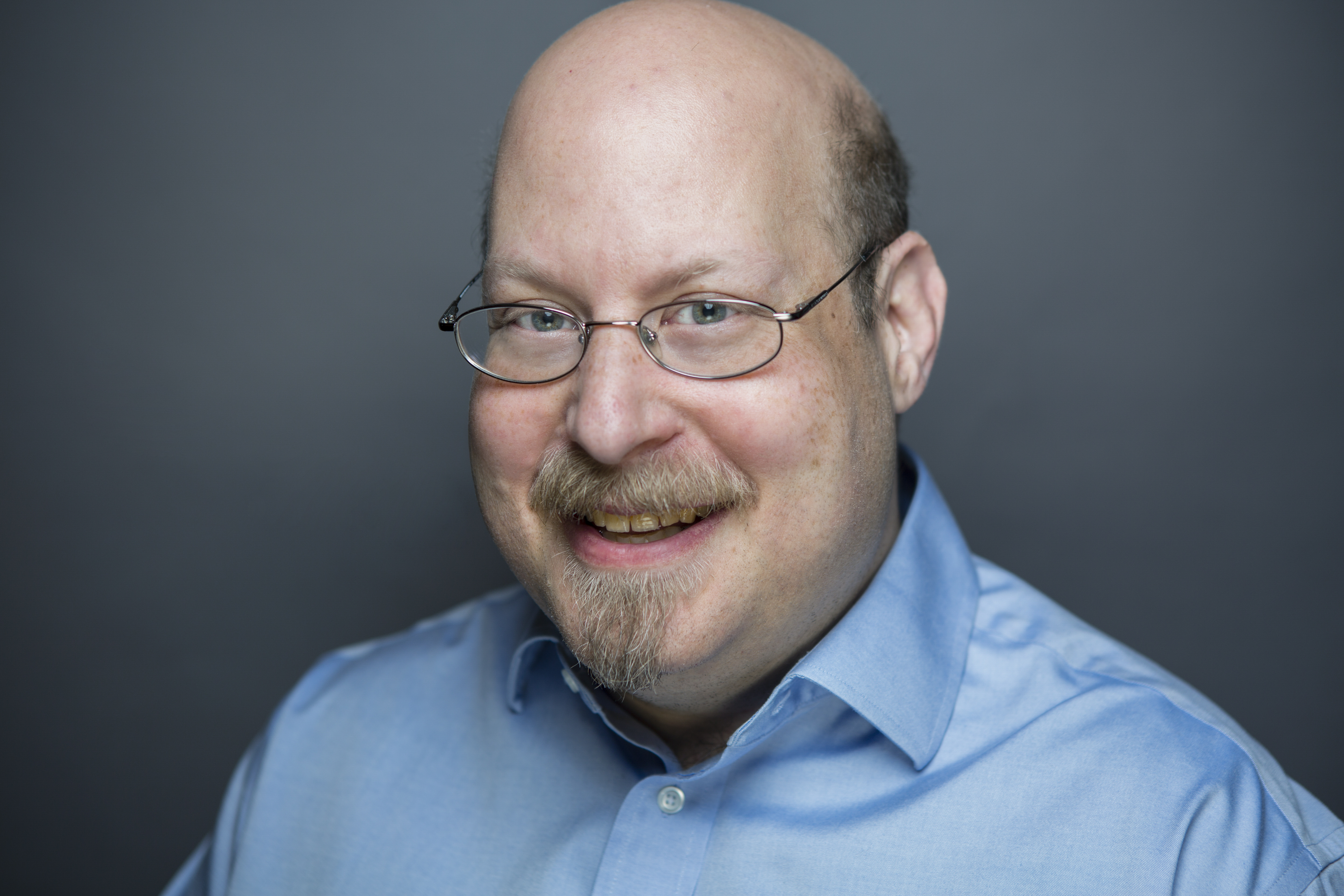
Avi Freedman
Today's Guests
